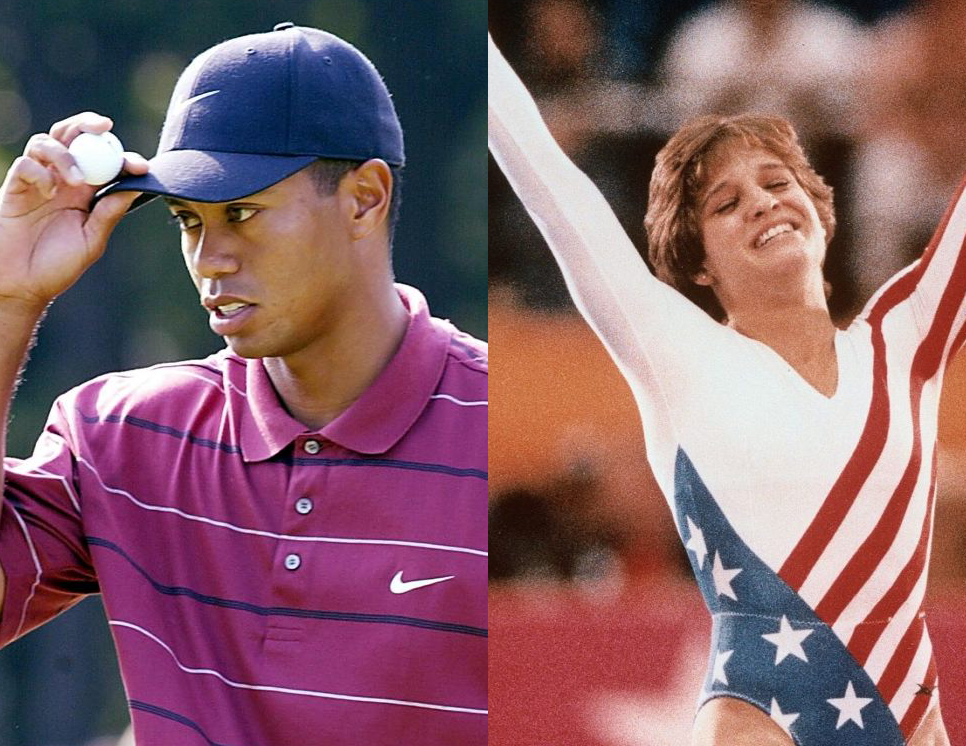The transformative power of focus
Mary Lou Retton’s ability to maintain concentration under duress is legendary. At the 1984 Summer Olympics in Los Angeles, Retton triumphed in the all-around gymnastics competition.
Retton’s success can be attributed to her ability to focus intently. Under intense Olympic pressure, she was able to block out distractions and perform at her best. Retton said her success was due in part to her mental preparation and creative thinking. She envisioned herself doing exceptionally well, which gave her more motivation.
The benefits of mental training in athletics are evident in Retton’s ability to maintain concentrate under intense strain. Her success is motivation for athletes of all skill levels and a reminder of the importance of maintaining concentration.
Professional golfer Tiger Woods is known for his intense concentration on the course. Woods shot to fame at an early age and has already won a record 82 PGA Tour tournaments and 15 major championships.
Woods’s skill in golf comes from his ability to focus diligently. His ability to tune out irrelevant information and maintain concentration under duress is remarkable. Visualization and mental practice are part of Woods’ mental training.
One reason for Woods’s success is his ability to maintain focus under pressure. Through sheer mental fortitude and concentration, he was able to surpass all expectations and achieve the highest level of excellence. The benefits of mental training in sports are evident in Woods’ level of concentration and attention. His success serves as motivation for athletes of all skill levels and emphasizes the need of paying close attention and staying in the moment.
A human mind/body is capable of astounding calculations and subtle distinctions that the naked eye cannot detect. Professional athletes are stunning to watch because of their elegance, finesse, and skill. The value of mental training in sports is demonstrated by Woods’ ability to maintain focus and concentration. His accomplishments are motivational for athletes of all skill levels, and his narrative highlights the importance of mental discipline.
What do these two athletes have in common?
Both have used hypnosis to control their focus and concentration while performing extraordinary feats of athletic control.
Hypnosis has long been utilized as a means of helping individuals enhance their capacity for focused attention. Whether it’s external, like noise, or internal, like negative thoughts, many people have trouble focusing. Hypnosis can help people enhance their ability to concentrate and focus by calming their thoughts and bringing them into the present moment.
Consistency
For a baseball player if the bat doesn’t make solid contact with the ball at the sweet spot, this can reduce the power of the hit and result in weaker fly balls and ground balls. Like a golfer. A couple degrees off can send his drive 30 yards off course.
From the pros to the casual players, most sportsmen struggle with inconsistency. Their performances vary.
How do you consistently perform?
How do you get such skill and precision?
How can a coach effectively support learning and performance?
Today’s coaching culture overemphasizes technical education over other ways. But directing our bodies what to do isn’t always effective. Our muscles don’t speak English and our conscious minds can’t understand eye-hand coordination. Imagine telling a baseball player to adjust his bat a quarter-inch.
Most leaders, supervisors, and coaches don’t recognize that telling someone what to do creates a judgmental environment and weakens a sportsman’s confidence.
Imagine what your students are thinking as they try to hit the ball. In their efforts to improve, most people try to make their bodies comply to the internal and external directions of their last lesson and overthink what they are doing.
This hinders their movement and coordination, not helping.
Focus transforms learning and performance
Mastering our minds is the key to controlling our bodies. First, learn to focus.
Famous baseball player Ray Knight said “Concentration is the ability to think about absolutely nothing when it is absolutely necessary.”
Timothy Gallwey noted in The Inner Game of Tennis that relaxed focus leads to greatness.
Phil Jackson, seven-time NBA champion, thinks “awareness is everything.”
When an athlete’s mind is free from internal and external verbal commands, their learning, performance, and enjoyment improve. They focus on the trajectory of the ball, the feel of their bat, the movement and positioning of their bodies, and where they want to hit the ball. Increased sensory information quality and quantity leads to improvement.
Sean Brawley is a former professional tennis player that now couches mindset to athletes and high performing executives. He describes a tennis focus exercise called a “Bounce-hit.” A player says “bounce” when the ball bounces on the ground and “hit” when it hits his racket. Focusing on the ball quiets the mind and sends more information about its spin, speed, and direction to the instinctual mind, which can then better calculate body movement, position, and swing. “Bounce-Hit” is the best tennis exercise ever invented, but few coaches and players use it.
Concentration is an essential component of athletic performance because it enables athletes to channel all of their attention and energy onto the activity that they are now engaged in. Mistakes, poor performance, and even injury can result from an inability to concentrate properly. Because of this, it is essential for athletes to work on improving their ability to concentrate in order for them to realize their maximum potential.
3 Keys to better focus
Athletes have a number of options available to them to help them enhance their concentration. One technique is called visualization, and it consists of an athlete imagining themselves performing a task or accomplishing a goal effectively. The innate capacity of the brain to concentrate can be activated with the help of visualization, which can also boost one’s motivation and confidence.
Mindfulness is another technique that might help enhance concentration. This technique is paying attention to the here and now without letting one’s thoughts, either internal or external, divert one’s attention. Meditation and other forms of relaxation practice are excellent ways to cultivate mindfulness because they assist to calm the mind and enhance focus. Practicing mindfulness can also be done on its own.
Athletes can also increase their concentration by establishing crystal-clear goals for themselves and cultivating an environment that is upbeat and free of distractions. This includes establishing goals that are measurable and within reach, removing potential distractions such as devices or loud music, and cultivating a culture on the team that is upbeat and helpful.
In addition to these tactics, some athletes may find it helpful to employ hypnosis as a tool to enhance their attention. This can be done in place of any of the strategies presented here. When trying to concentrate on something, negative thoughts and self-doubt can be huge distractions. Hypnosis can assist calm the mind and eradicate these thoughts, which can be helpful.
In general, maintaining one’s concentration is an essential component of successful athletic performance. Athletes can enhance their concentration and perform to the best of their abilities by employing a variety of mental training strategies, such as goal-setting, mindfulness, and visualization.
Master the Art of Focusing: Boost Learning, Performance, and Engagement
Our team of experienced hypnotists is here to assist athletes like you tap into the power of hypnosis to improve performance and achieve new levels of excellence.
Find out more.




